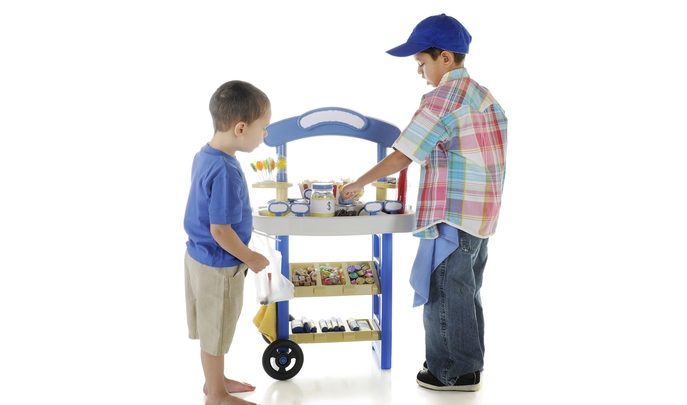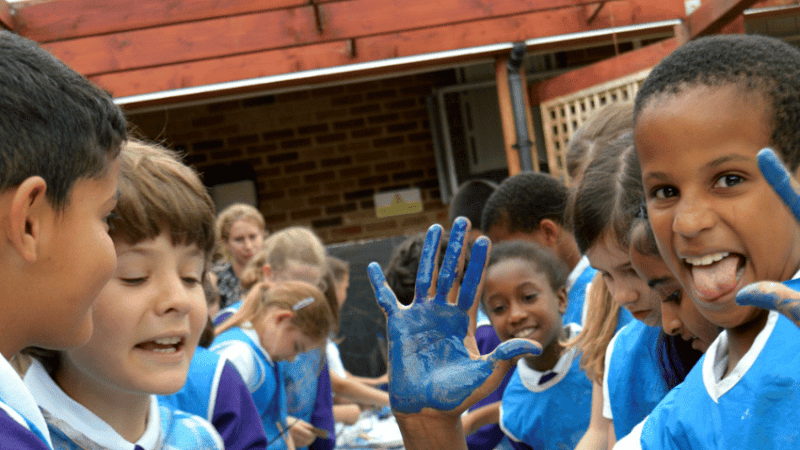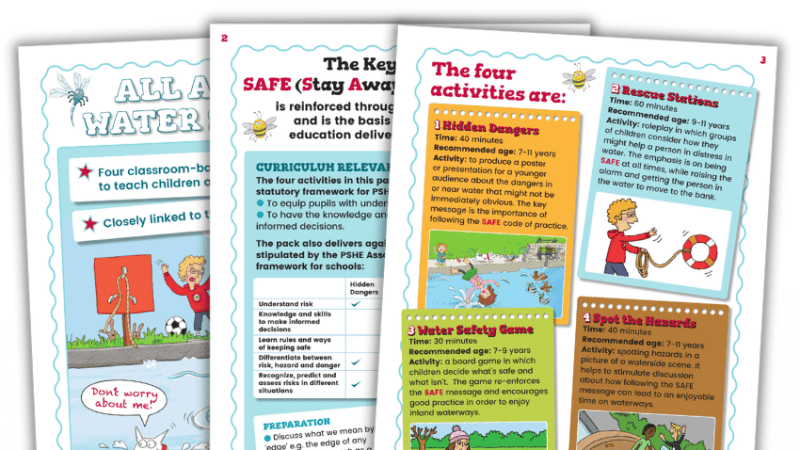Selling? It’s Child’s Play…

Your children won’t necessarily turn into an army of mini-Alan Sugars if they learn about sales techniques – but it will teach them how to promote their best qualities, says Dylan McCarthy…

How many of our pupils end up working in the science industry? What about engineering or archaeology? In schools we teach subjects that steer people towards these careers – so why don’t we teach them something more universal, like sales skills?
Becoming this type of salesperson requires an array of skills and attributes that need to be developed from an early age, including negotiation and persuasive writing skills; determination and perseverance; sensitivity to different people and audiences and a willingness to adapt your style to their needs; self-confidence; self-discipline; and multidisciplinary ways of communicating.
It’s not just about money
‘Selling’ can often mean solving someone’s problem, or convincing them that something is a good or bad idea. It can be about helping them see the benefits of change. Viewed in this way, we’re all salespeople.
When we share ideas at staff meetings, run a training session for colleagues or moderate each other’s work, we’re selling our thoughts, ideas and feelings – trying to get others to buy into our way of thinking. Selling doesn’t always involve a product or service – it can also involve beliefs and opinions. Most importantly, teaching sales will help develop great communication skills. Often, in our world of social media and instant messaging, children typically aren’t exposed to communicating to wider audiences – but by teaching selling techniques in a fun and relevant way, children can soon start to see their benefits.
For example, task a child with convincing you to buy a certain pen – why is this the pen I need? Children already use great techniques to barter or to convince us to get what they want. They’ll tell you why you should let them stay up an extra half hour, or why they deserve more pocket money. We’re just helping them fine-tune and enhance these techniques so that they can be developed into skills for life. At some point in their lives every child will experience an interview, be it for a job or a place at a new school or university – and this will require the individual to sell themselves. Not every child will be a salesperson, but in whatever job they apply for, good selling and communication skills will be critical. A final warning – when teaching children about selling, it’s crucial there be an underlying moral and ethical code. It should be a win-win situation, where both parties feel happy with the outcome. Just because you can convince someone to do or buy something (and you win), is it the right outcome for them? Do the right thing, and everyone will feel happy.
Dylan McCarthy is a primary school teacher and director of Stepping into Business – a social enterprise that teaches business skills to children of all ages through games, role-playing and negotiating/sales activities; for more information, visit steppingintobusiness.org or follow @SteppingintoBiz
It’s the one thing that will last them a lifetime, and can be used regardless of career choice, but it’s almost as if we’re scared of what selling stands for.
There to help
Sales impact our lives on a daily basis. Whether we’re being encouraged to make that extra purchase in a shop, invited to sponsor a child who’s raising money for charity or simply watching an advert on TV, we live in a world where we are the target market for someone, something, somewhere, all of the time. Selling is involved in every part of life, so the sooner we can help children develop their understanding of it, the better. The problem is that selling often has negative connotations. People immediately think of the stereotypical second-hand car salesman, pushy sales clerks in stores, manipulative telephone marketers, wide-boy city traders – the list is endless. In reality, though, these represent just a tiny minority of people who make their living through sales. Most salespeople are there to help you; they are not all motivated by greed and commission. In fact, many organisations don’t reward high sales figures, but rather salespeople that have returning customers and/or repeat business. It’s far cheaper for a company to retain a customer than acquire a new one, so low-pressure, empathetic, supportive salespeople are in demand now more than ever.
Becoming this type of salesperson requires an array of skills and attributes that need to be developed from an early age, including negotiation and persuasive writing skills; determination and perseverance; sensitivity to different people and audiences and a willingness to adapt your style to their needs; self-confidence; self-discipline; and multidisciplinary ways of communicating.
It’s not just about money
‘Selling’ can often mean solving someone’s problem, or convincing them that something is a good or bad idea. It can be about helping them see the benefits of change. Viewed in this way, we’re all salespeople.
When we share ideas at staff meetings, run a training session for colleagues or moderate each other’s work, we’re selling our thoughts, ideas and feelings – trying to get others to buy into our way of thinking. Selling doesn’t always involve a product or service – it can also involve beliefs and opinions. Most importantly, teaching sales will help develop great communication skills. Often, in our world of social media and instant messaging, children typically aren’t exposed to communicating to wider audiences – but by teaching selling techniques in a fun and relevant way, children can soon start to see their benefits.
For example, task a child with convincing you to buy a certain pen – why is this the pen I need? Children already use great techniques to barter or to convince us to get what they want. They’ll tell you why you should let them stay up an extra half hour, or why they deserve more pocket money. We’re just helping them fine-tune and enhance these techniques so that they can be developed into skills for life. At some point in their lives every child will experience an interview, be it for a job or a place at a new school or university – and this will require the individual to sell themselves. Not every child will be a salesperson, but in whatever job they apply for, good selling and communication skills will be critical. A final warning – when teaching children about selling, it’s crucial there be an underlying moral and ethical code. It should be a win-win situation, where both parties feel happy with the outcome. Just because you can convince someone to do or buy something (and you win), is it the right outcome for them? Do the right thing, and everyone will feel happy.
Dylan McCarthy is a primary school teacher and director of Stepping into Business – a social enterprise that teaches business skills to children of all ages through games, role-playing and negotiating/sales activities; for more information, visit steppingintobusiness.org or follow @SteppingintoBiz












